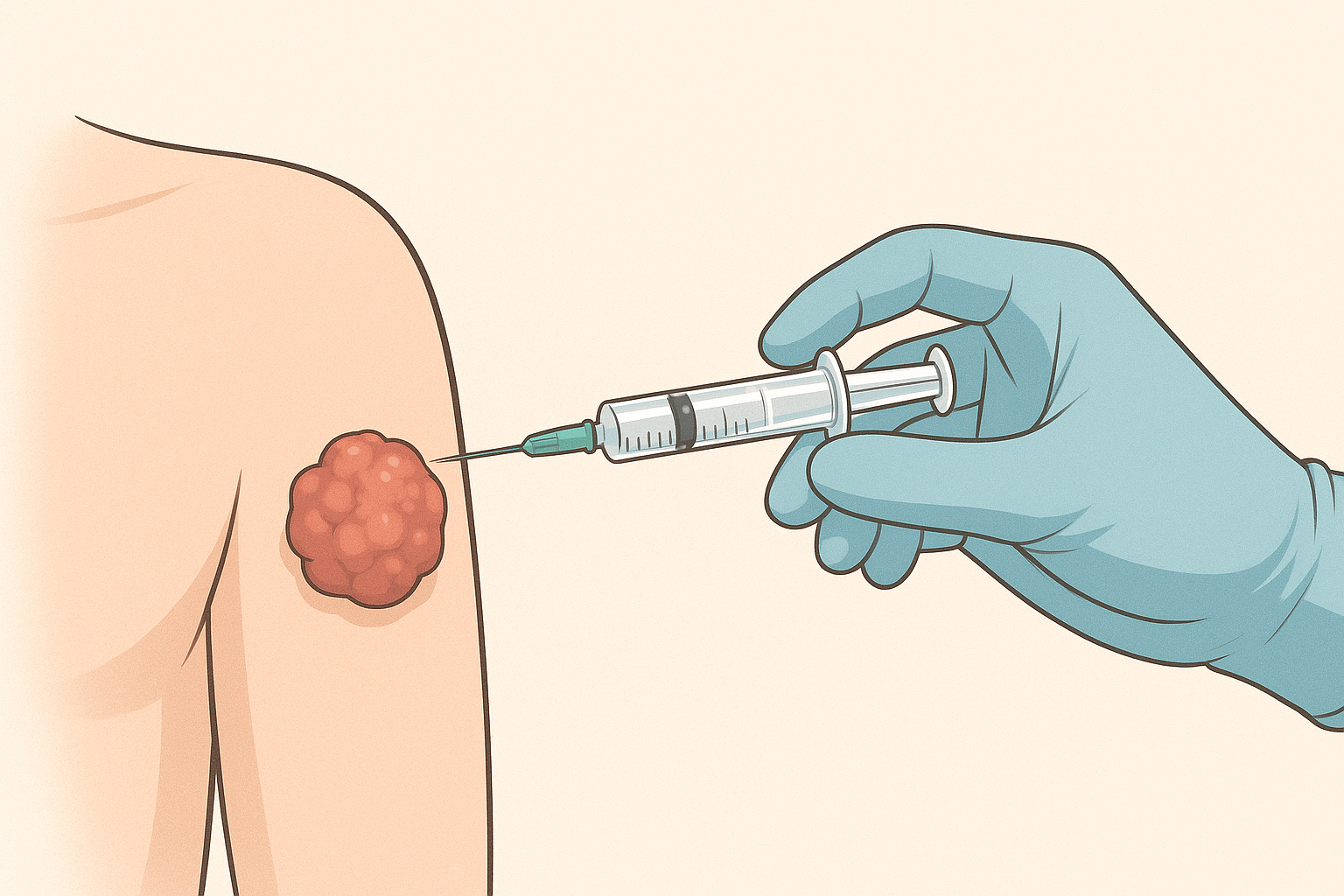
On September 19, 2025, the U.S. Food and Drug Administration (FDA) approved Merck’s KEYTRUDA QLEX™ (pembrolizumab and berahyaluronidase alfa-pmph) injection for subcutaneous use in adults across 38 solid tumor indications previously approved for KEYTRUDA® (pembrolizumab), marking it as the first subcutaneously administered immune checkpoint inhibitor.
This fixed-combination drug, incorporating pembrolizumab (a PD-1 blocking antibody) and berahyaluronidase alfa (enhancing subcutaneous delivery), can be administered by healthcare providers in one minute every three weeks or two minutes every six weeks, offering a faster alternative to the 30-minute IV infusion of KEYTRUDA. The approval is supported by the Phase 3 Study 3475A-D77, a multicenter, randomized trial in treatment-naïve metastatic non-small cell lung cancer (NSCLC) patients without EGFR, ALK, or ROS1 aberrations.
The study demonstrated comparable pharmacokinetic exposure (Cycle 1 AUC 0-6 weeks and Cycle 3 C trough) and efficacy, with overall response rates of 45% for KEYTRUDA QLEX versus 42% for IV pembrolizumab, alongside similar progression-free survival (PFS) and overall survival (OS). Safety profiles were also comparable, though KEYTRUDA QLEX is contraindicated in patients with hypersensitivity to berahyaluronidase alfa or its excipients and carries risks of severe immune-mediated adverse reactions, including pneumonitis, colitis, hepatitis, and endocrinopathies, requiring careful monitoring and potential corticosteroid intervention. The subcutaneous formulation enhances patient convenience by enabling administration in various settings, such as infusion centers or community clinics, and offers flexibility with injection sites in the thigh or abdomen. Common adverse reactions (≥20%) include nausea, fatigue, and musculoskeletal pain.
This approval expands treatment options, particularly for patients with difficult venous access, and aligns with Merck’s commitment to patient-centered cancer care innovations. KEYTRUDA QLEX is expected to be available in the U.S. by late September 2025, providing a significant advancement in immunotherapy delivery for a broad range of solid tumors, including melanoma, NSCLC, and urothelial cancer, among others. For detailed safety information, refer to Merck’s prescribing information.

